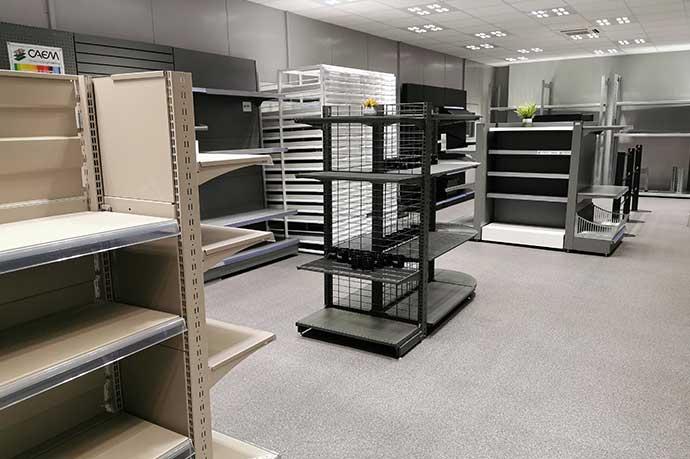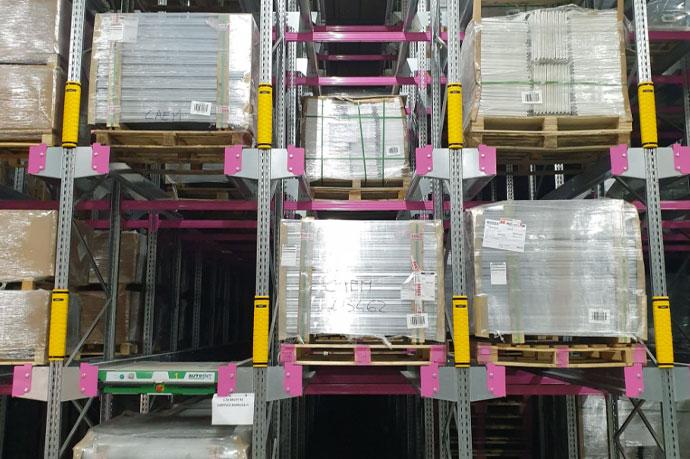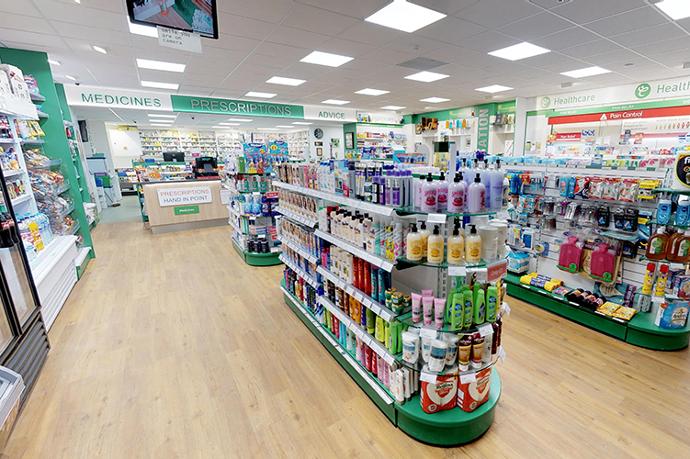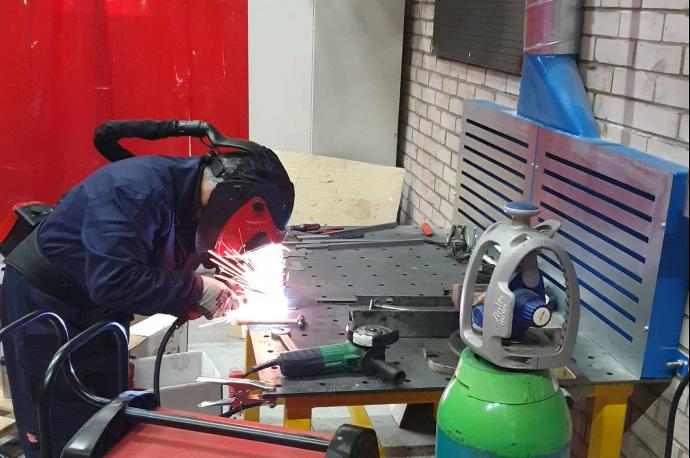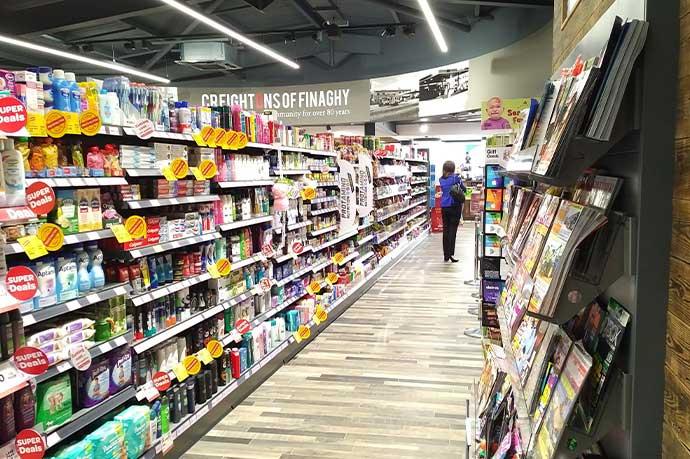Shopfitting Display Manufacturer – the UK Manufacturer Helping Retailers
When you step into a well-organised retail space, every shelf, display, and fitting has been meticulously planned and manufactured to shape your shopping experience. Behind the scenes, a shopfitting display manufacturer is the architect of these environments, blending engineering expertise with creative vision. In the UK, where physical retail continues to account for 71.8% of all retail sales in 2023, the work of display manufacturers remains essential for retailers striving to stand out and adapt to a dynamic market.
Understanding the Role of a Shopfitting Display Manufacturer
A shopfitting display manufacturer is far more than a supplier of shelves and fixtures. They serve as a vital partner for retailers, transforming empty spaces into compelling environments that drive engagement and sales. At the heart of this partnership is a deep understanding of both design and manufacturing, covering everything from material selection and compliance with safety standards to prototyping and nationwide delivery.
Leading manufacturers bring efficiency to the process through in-house facilities and established supply chains. This capability enables them to scale solutions for large rollouts while maintaining the flexibility needed for bespoke projects. The result is a seamless process that supports retailers from concept through to installation, with ongoing support that adapts as needs evolve.
The industry landscape includes established players like CAEM, Shopkit Designs, and Nexus Display, each offering distinct approaches to retail solutions. Some specialise in modular systems for quick deployment, while others focus on high-end bespoke installations for luxury retailers.
Categories of Shopfitting Products
The modern retail landscape demands a diverse range of shopfitting supplies. A comprehensive shopfitting company will offer everything from robust shelving systems and modular display stands to point-of-sale units, signage, and custom fixtures. Product portfolios typically include gondola shelving, modular systems, pharmacy drawers, and bespoke wire solutions, each tailored for specific sectors such as food, healthcare, and general merchandise.
Retailers benefit from this breadth by being able to select both off-the-shelf and made-to-order items. Gondola shelving systems are engineered for flexibility and efficiency, allowing for easy reconfiguration as retail needs change. Storage racking, modular pharmacy drawers, and an array of display accessories further ensure that every corner of the store can be optimised for both backroom storage and front-of-house merchandising.
Increasingly, ethical sourcing and sustainability are shaping product lines, with leading manufacturers prioritising recyclable materials and eco-conscious processes. This trend is particularly important given the £7,182.74 million value of the UK shopfitting materials market projected for 2025.
Common Challenges and How to Avoid Them
Selecting the right shopfitting manufacturer involves navigating several potential pitfalls that have become increasingly prevalent in 2023-2024. Understanding these challenges helps retailers make more informed decisions and set realistic expectations.
Budget Overruns and Cost Management
Rising cost pressures driven by wage increases, inflation, and material costs have led to frequent budget overruns during shopfitting projects. In early 2024, several UK retailers reported unanticipated cost increases after the introduction of higher National Living Wages and inflation-driven price hikes on raw materials.
To mitigate this risk, retailers should request detailed cost breakdowns upfront, build contingency budgets of 10-15%, and establish clear change order procedures with their chosen manufacturer.
Timeline Delays and Project Management
Timeline delays remain persistent, often triggered by supply chain disruptions and labour shortages. Throughout 2023, multiple UK retail chains experienced significant store launch delays due to late-arriving shopfitting fixtures, with some projects running several months behind schedule.
Successful retailers now insist on detailed project timelines with milestone checkpoints, penalty clauses for delays, and regular progress updates from their shopfitting partners.
Quality Control and Manufacturing Standards
Quality lapses can result in costly rework, damaged brand reputation, and negative customer experiences. In 2023, several retailers cited instances where delivered fixtures failed to meet agreed specifications, leading to additional production rounds and delayed store launches.
The solution lies in choosing manufacturers with robust quality assurance processes, requesting samples before full production, and establishing clear acceptance criteria upfront.
Supplier Communication and Reliability
Poor project management, lack of transparency, and weak progress updates from suppliers can jeopardise collaboration. Retailers reported challenges in 2023-2024 sourcing reliable partners, with some shopfitters providing limited project visibility or failing to communicate delays promptly.
Sustainability and Compliance Pressures
Driven by consumer demand for ethical practices, retailers face pressure to choose manufacturers offering environmentally friendly materials. In 2024, prominent high street retailers highlighted difficulties in sourcing shopfitting components that align with their sustainability commitments, with some suppliers unable to provide verified eco-friendly materials.
Cost Considerations and ROI Metrics
Understanding the financial implications of shopfitting investments is crucial for making informed decisions. Retailers should evaluate both upfront costs and expected returns when planning their projects.
Typical Budget Ranges
Shopfitting costs vary significantly based on store size, location, and quality requirements:
Small Retail Projects (Under 1,000 sq ft): Basic installations range from £10,000-£30,000, while premium solutions can exceed £100,000.
Medium Retail Projects (1,000-5,000 sq ft): Expect budgets between £50,000-£350,000, depending on complexity and materials.
Large Retail Projects (Over 5,000 sq ft): Investments typically range from £200,000 to £1,500,000+ for comprehensive fitouts.
Key Performance Indicators
Successful shopfitting investments should deliver measurable returns through several key metrics. Sales per square foot typically increases as improved store layouts enhance product visibility and customer flow. Conversion rates often improve significantly when stores create more engaging shopping environments through strategic display placement.
Average order value can increase when shopfitting improvements create premium shopping experiences that encourage additional purchases. Beyond traditional metrics, retailers are increasingly focusing on return on experience (ROX), which measures value created through improved customer experience.
Most successful shopfitting investments yield positive ROI within 12-24 months, depending on project scale and design effectiveness.
Leading Industry Trends for 2024-2025
The shopfitting landscape is evolving rapidly, driven by sustainability requirements, technology integration, and post-pandemic retail adaptations.
Sustainability Focus
Retailers are prioritising eco-friendly solutions, using reclaimed timber, low-VOC paints, and sustainable materials throughout their store refurbishments. Energy efficiency initiatives, including LED lighting and smart HVAC systems, have become standard practice, supporting both cost reduction and ESG commitments.
Technology Integration
Interactive digital displays and touchscreens now offer immersive brand experiences, while contactless payment points and self-service kiosks increase efficiency and cater to health-conscious consumers. Smart fitting room technology, including virtual try-on capabilities, is being deployed across apparel sectors.
Flexible Space Design
Modular and flexible layouts using movable partitions and adjustable shelving allow stores to reconfigure quickly in response to changing needs. This adaptability reduces waste and costs while enabling updates without complete refits.
Choosing the Right Shopfitting Display Manufacturer
Selecting a shopfitting display manufacturer requires careful evaluation across multiple criteria. Experience and track record are fundamental, with established manufacturers typically offering greater reliability and industry knowledge.
Innovation capabilities matter significantly. Manufacturers providing in-house prototyping, rapid customisation, and scalable production ensure both standard and bespoke requirements are met efficiently. Quality assurance processes, with manufacturers controlling every production stage from technical drawings to final assembly, deliver consistent results.
Practical Evaluation Framework
When assessing potential partners, retailers should evaluate technical capabilities, including manufacturing capacity, quality certifications, and design expertise. Financial stability and pricing transparency help ensure project continuity and budget predictability. Customer service quality, including dedicated account management and responsive support, often determines long-term satisfaction.
Sustainability credentials are increasingly important, with leading manufacturers offering verified eco-friendly materials and processes. Geographic coverage and installation capabilities should align with rollout plans, whether for single stores or nationwide deployments.
Bespoke Solutions and Client Collaboration
Successful shopfitting projects often require bespoke solutions tailored to specific retail environments. The best manufacturers adopt consultative approaches, listening to client visions and translating unique challenges into practical designs. Collaborative development, including prototype testing and refinement, ensures solutions meet both immediate and future needs.
Notable examples include convenience store transformations that combine custom bakery displays with refrigeration units in branded finishes, creating brighter, more efficient environments that improve shopper flow. Healthcare sector projects demonstrate how modular pharmacy drawers and specialised storage solutions can be engineered for specific operational requirements.
The process relies on clear communication, technical expertise, and willingness to adapt, ensuring every solution delivers both functional performance and aesthetic appeal.
Navigating the Shopfitting Purchasing Process
The journey from concept to completion involves several critical stages that require careful management. Initial needs assessment establishes objectives, constraints, and desired outcomes, followed by design development and prototyping that gives clients tangible previews of final installations.
Once designs are approved, manufacturers handle materials procurement, fabrication, and assembly. Quality control throughout production ensures specifications are met, while efficient project management maintains timelines and budgets. Installation coordination with skilled shopfitters guarantees seamless integration of new fixtures.
Post-installation support, including maintenance guidance and upgrade options, reinforces the manufacturer's role as a long-term partner rather than a one-off supplier. Regular quality assurance checks ensure ongoing performance meets expectations.
Conclusion
The UK's retail sector, valued at £517 billion in 2024, continues to rely heavily on physical stores, making skilled shopfitting display manufacturers indispensable partners for retailers. Success requires choosing partners who balance experience with innovation, offering everything from modular systems to bespoke solutions while leading on sustainability and service standards.
Whether outfitting a single boutique or rolling out hundreds of stores, the right manufacturer provides the blend of technical capability, collaborative approach, and long-term support needed to create retail environments that perform brilliantly both today and in the future. By understanding common challenges, evaluating costs and returns carefully, and staying current with industry trends, retailers can make informed decisions that drive lasting success.
